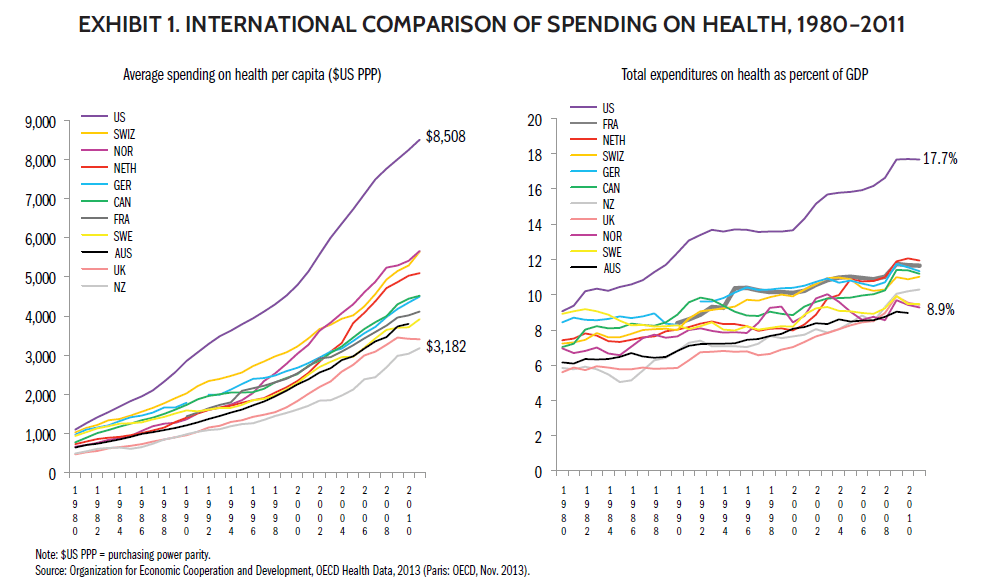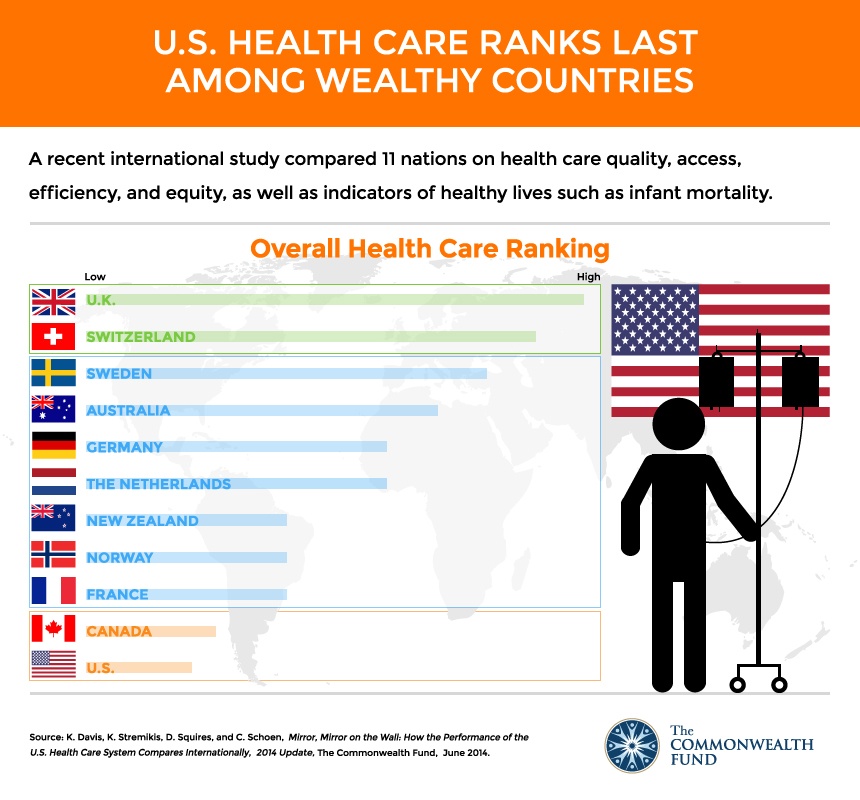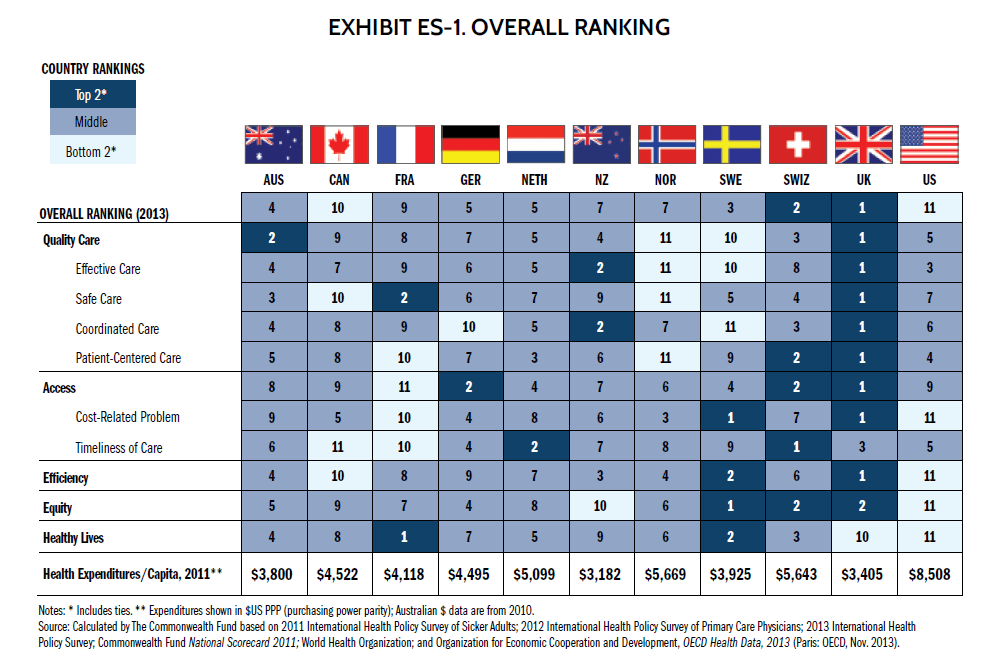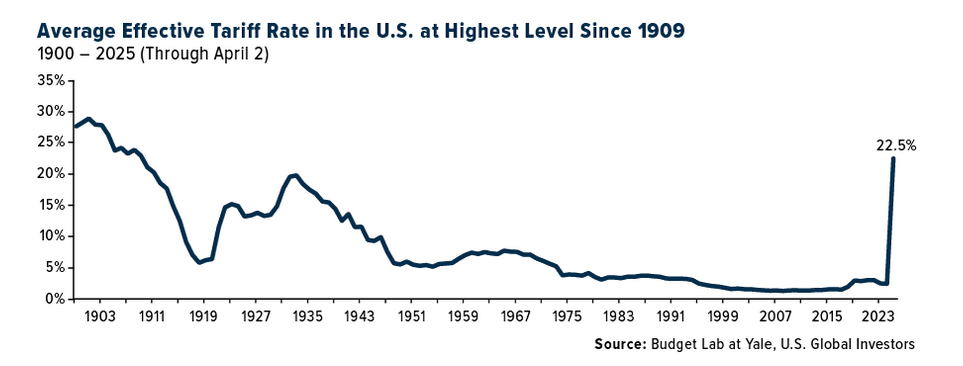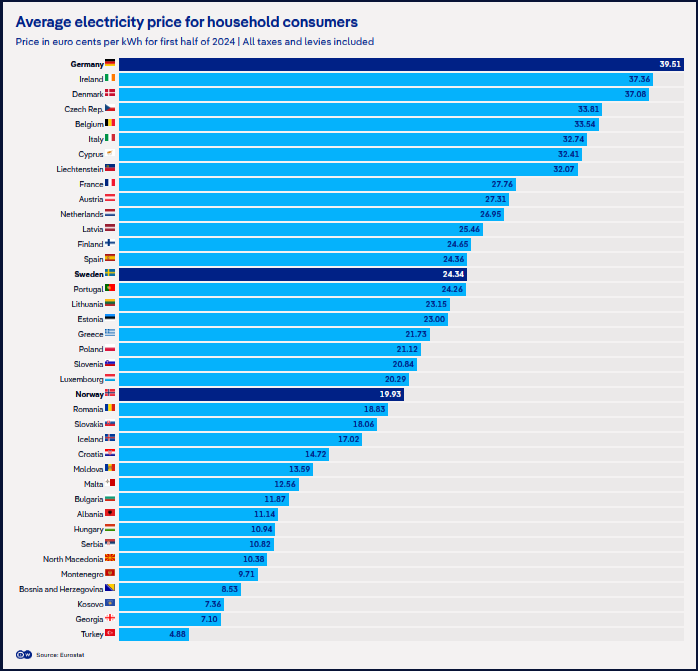It has been many months since I wrote an article on the U.S. healthcare system. In this post lets take a look at how the U.S. system compared to 11 other developed countries.
According to a report published in June last year by The Commonwealth Fund, the U.S. ranks last overall. This won’t be shock to anyone if the U.S. had the cheapest healthcare system and spent the lowest in the world. However the exact opposite is true. The country spends the most on healthcare as a percentage of GDP. In addition, the average spendingon health per capita is also the highest as the chart below shows:
Click to enlarge
However despite this high spending the outcomes are not the best. In fact, they are very low based on many measures.
According to the authors of the report, the claim that the U.S. has “the best health care system in the world” is clearly not true.
The following graphic shows where the U.S. stands compared to other countries in terms of overall ranking:
The chart below shows the ranking based on various individual measures:
From the report:
The most notable way the U.S. differs from other industrialized countries is the absence of universal health insurance coverage.5 Other nations ensure the accessibility of care through universal health systems and through better ties between patients and the physician practices that serve as their medical homes. The Affordable Care Act is increasing the number of Americans with coverage and improving access to care, though the data in this report are from years prior to the full implementation of the law. Thus, it is not surprising that the U.S. underperforms on measures of access and equity between populations with above- average and below-average incomes.
The U.S. also ranks behind most countries on many measures of health outcomes, quality, and efficiency. U.S. physicians face particular difficulties receiving timely information, coordinating care, and dealing with administrative hassles. Other countries have led in the adoption of modern health information systems, but U.S. physicians and hospitals are catching up as they respond to significant financial incentives to adopt and make meaningful use of health information technology systems. Additional provisions in the Affordable Care Act will further encourage the efficient organization and delivery of health care, as well as investment in important preventive and population health measures.
Source: Mirror, Mirror on the Wall, 2014 Update: How the U.S. Health Care System Compares Internationally, The Commonwealth Fund
